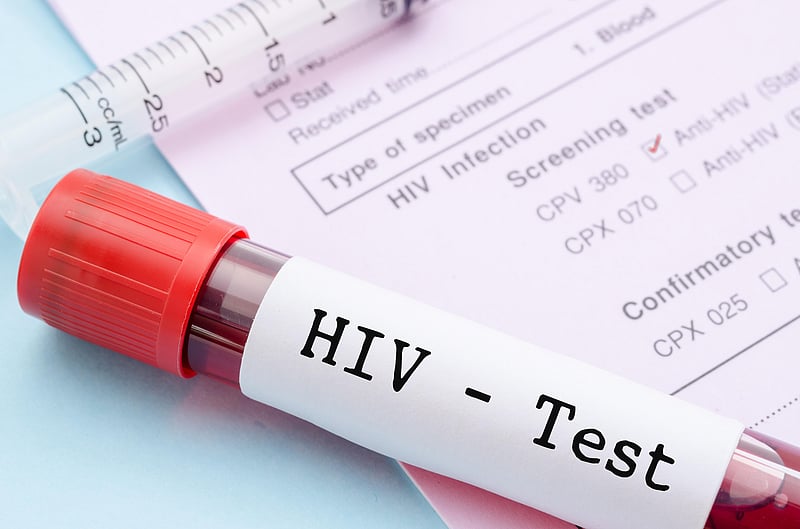Get Healthy!

- Amy Norton
- Posted December 2, 2022
Scientists May Be Closer to Effective HIV Vaccine
It's thought that for an HIV vaccine to be widely effective, it will have to spur the body to make special antibodies that can neutralize a broad range of HIV strains. Now scientists say they have taken an essential step in that direction.
In an early study, researchers found that an experimental HIV vaccine was able to induce an immune system response that is necessary to produce "broadly neutralizing" antibodies against the virus.
It's the first time a vaccine has been shown to do that in humans.
The findings -- published in the Dec. 2 issue of Science -- come from a study of 48 healthy adults who received either two doses of the vaccine or two doses of a placebo (inactive substance).
Of 36 participants who got the vaccine, 35 showed a substantial increase in rare immune system cells that are precursors to broadly neutralizing antibodies against HIV.
Experts said the achievement is a "proof of concept" -- that it is possible for a vaccine to induce such a response.
"This is certainly a positive finding, but there's a lot more work to be done," said Dr. Colleen Kelley, an associate professor at Emory University of School of Medicine in Atlanta and vice chair of the HIV Medicine Association's Board of Directors.
Kelley, who was not involved in the study, said inducing the precursor cells is a "first step." The big question now is whether those precursors can be coaxed to mature into broadly neutralizing antibodies, or bnAbs (pronounced "bee-nabs").
Scientists have been trying to develop an HIV vaccine since the 1980s, with occasional glimmers of hope followed by disappointment. HIV is a formidable foe for numerous reasons -- a major one being its ability to mutate rapidly, generating new strains as it passes from one person to another.
Traditional vaccines against viral diseases, like measles, the flu or COVID, work by stimulating the immune system to produce antibodies against the virus. Antibodies are specialized proteins that recognize foreign invaders, latch onto them and neutralize them.
That traditional vaccine approach has not worked with HIV, Kelley explained. Researchers have developed vaccines that do successfully generate antibodies, she said -- but those antibodies did not thwart HIV infection.
"We haven't been able to develop an HIV vaccine because it's really, really hard to do," said Dr. Juliana McElrath, a professor at Fred Hutchinson Cancer Center in Seattle and a senior researcher on the new study.
However, some important progress has been made in recent years. More than a decade ago, scientists discovered that some people with HIV are able to produce bnAbs against the virus. In the lab, those bnAbs can neutralize a wide range of HIV strains, because they recognize particular HIV proteins that are often conserved even when the virus mutates.
The problem is, the immune system does not normally churn out such bnAbs when HIV invades the body. So the question for researchers is: Can vaccination coax it to do so?
Through years of research into exactly how bnAbs interact with HIV, scientists have created a new generation of vaccine candidates that are in various stages of development.
The new study tested one of those, dubbed eOD-GT8 60mer. It's an engineered immunogen, a substance that elicits an immune response. It is designed to stimulate and expand certain rare B cells that have the potential to produce HIV-fighting bnAbs.
Among the 36 volunteers who received the vaccine, there were no safety issues. And all but one showed the immune response the researchers were looking for. That's a necessary step, both McElrath and Kelley said.
But it's only the first step in a complex process.
"This vaccine gets things started," McElrath said. It will take additional boosters to keep shepherding these precursor cells to mature into bnAbs that can protect against HIV.
The researchers are now running another small trial of healthy volunteers -- this time testing eOD-GT8 60mer followed by a booster with a different immunogen, to try to further guide the bnAb precursors through maturation.
After a decades-long quest for an HIV vaccine, the bnAb approach represents a "new avenue," Kelley said.
And there is cause for cautious optimism, according to McElrath.
"I do think this is a major advance from where we were before," she said. "This provides us with a path forward."
The research was funded by the Bill and Melissa Gates Foundation, the International AIDS Vaccine Initiative, the U.S. National Institute of Allergy and Infectious Diseases and others.
More information
The International AIDS Vaccine Initiative has more on HIV vaccine research.
SOURCES: M. Juliana McElrath, MD, PhD, professor, Vaccine and Infectious Disease Division, Fred Hutchinson Cancer Center, professor, medicine, University of Washington, Seattle; Colleen Kelley, MD, MPH, associate professor, medicine, Emory University School of Medicine, Atlanta, vice chair, Board of Directors, HIV Medicine Association, Arlington, Va.; Science, Dec. 2, 2022







